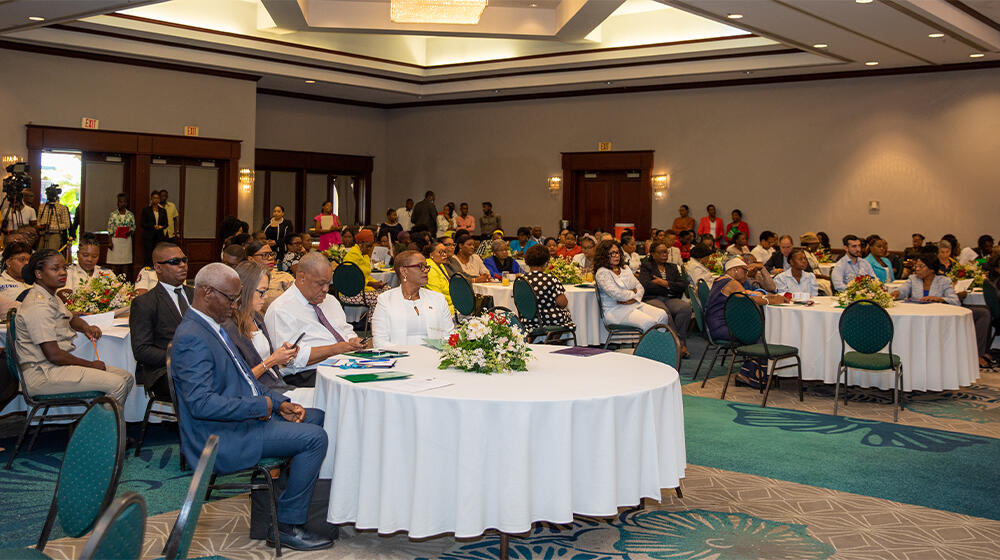Port-au-Prince, August 27, 2024 --- The Ministry for the Status of Women and Women's Rights (MCFDF) organized, in collaboration with the United Nations System in Haiti, a national symposium on "the place of women in the transition : Let's harmonize to fight against Gender-Based Violence (GBV)", on August 27, 2024, in Pétion-Ville.
The aim of this national symposium was to foster a space for dialogue allowing state and non-state actors to express their understanding of the place of women and girls in the transition.
The aim of this conference was to propose realistic actions capable of helping the MCFDF in the implementation of its roadmap with regard to the five main axes of the transition.
“In the near future, gangs will be nothing more than a bad memory,” said the coordinator of the Presidential Transitional Council. Referring to the sexual slavery to which gangs subject many women and girls, Edgard Leblanc hoped that the symposium would lead to the adoption of better strategies to combat gender-based violence.
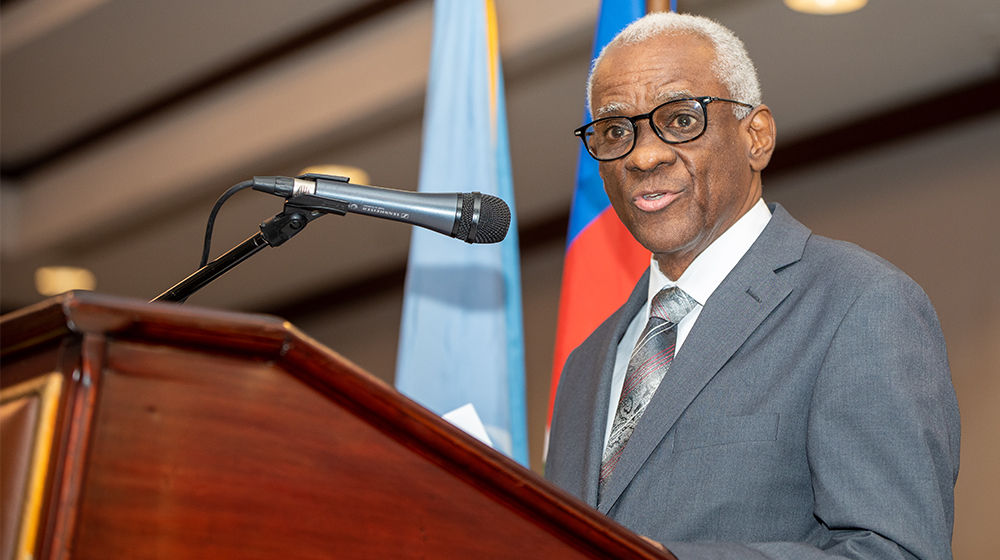
The humanitarian situation in Haiti has deteriorated with the intensification of armed violence, exposing women and girls to increased risks of gender-based violence.
The Prime Minister called for effective participation of women in all decisions that concern the country.
Garry Conille indicated that the government will rejuvenate the public administration and integrate more women into it.
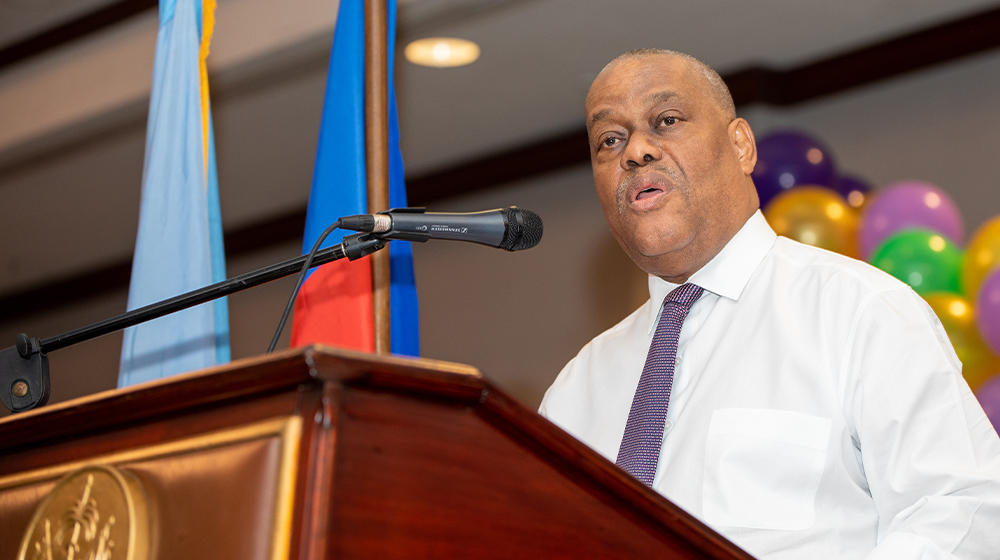
The Minister for the Status of Women and Women's Rights indicated her ministry's determination to advance gender parity.
Marie Francoise Suzan reported the availability of more than 25 million gourdes as part of the fight to break the cycle of violence against women and 50 million gourdes to help women in detention regain their dignity and maintain hope.
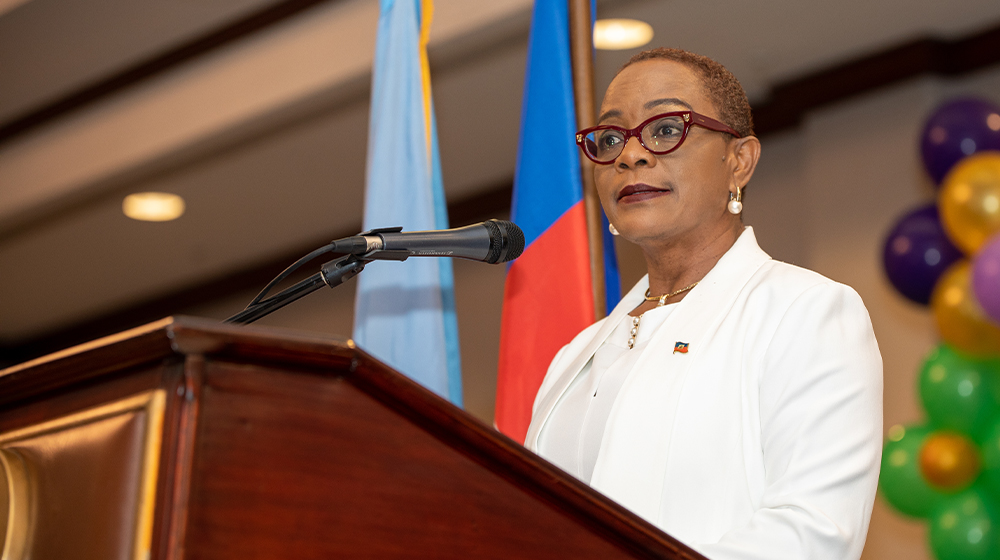
94% of women and girls are at risk of gender-based violence in Haiti.
72% of gender-based violence incidents are sexual violence, mainly committed by gang members.
Women and girls make up more than half of Haiti’s 580,000 displaced people.
The UN Resident and Humanitarian Coordinator in Haiti has spoken out in support of equal rights, power and influence.
Ulrika Richardson called for the participation of women in public administration according to the 30% quota, as stated in Article 17.1 of the Constitution.
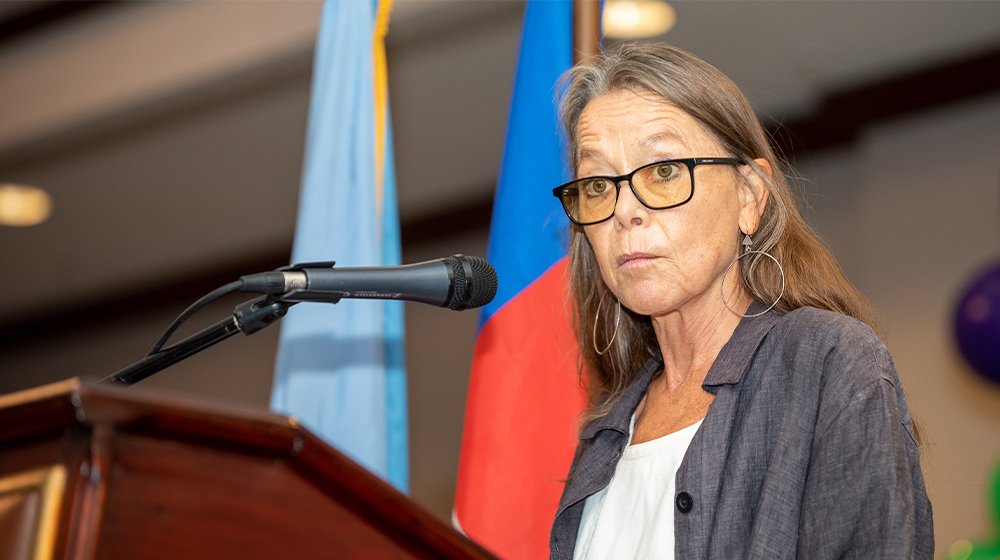
These interventions were followed by a panel on the current situation of women and five specific workshops on the pillars of government action. These workshops were to result in the development of specifications on the transition.
The Agreement of April 3, 2024 for a peaceful and orderly transition, the Decree of April 10, 2024 establishing the Presidential Transitional Council, and the Decree of May 23, 2024 determining its organization and mode of operation assign to the Presidential Transitional Council and to the Government led by its Prime Minister, the responsibility for carrying out the five (5) major axes of the transition indicated in said agreement:
1. Public and national security;
2. Economic recovery, infrastructure rehabilitation, food and health security;
3. National conference and constitutional question;
4. Rule of law and justice;
5. Elections for the renewal of political personnel.
The Prime Minister began to implement this commitment on July 17, 2024 by submitting to Minister Marie Françoise Suzan the roadmap of the Ministry for the Status of Women and Women's Rights. This contains the indications defined for the implementation of the five major axes of the transition by the MCFDF. This reflects, according to the MCFDF, the will and commitment of the Prime Minister and the Presidential Council to give pride of place to women and girls in the transition according to the principles of equality, equity and inclusion.
However, women and girls will not be able to occupy or enjoy this place in the transition without overcoming the major obstacles linked to the persistence of social stereotypes, to the different forms of physical and social violence including gender-based violence (GBV) to which women and girls are exposed daily, particularly those living in camps for displaced persons due to violence caused by armed gangs. It will also be necessary to overcome the obstacles linked to the socio-economic empowerment, political and electoral participation of women and girls.
Sociologist and feminist activist Danièle Magloire complains about the holding of numerous conferences without any results.
UNFPA and UN Women in Haiti jointly presented a Humanitarian Country Team (HCT) strategic note to strengthen inclusive prevention and response to gender-based violence in Haiti.
This note aims to strengthen access to services for GBV survivors, improve coordination between humanitarian actors, promote the economic empowerment of vulnerable women and girls and increase women's participation in humanitarian management.
Text: Vario Sérant
Photos: Michael Isaac Junior Ambroise

